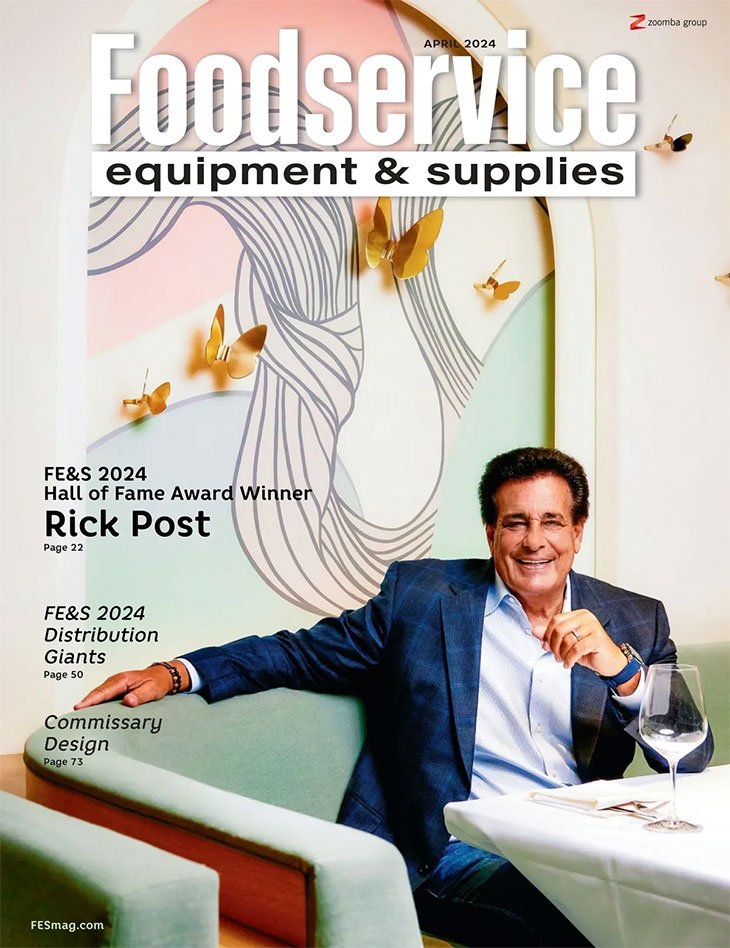 Jasmin Parks-PapadopoulosFounded in Denver in 2018, CHOW is a nonprofit whose acronym stands for Culinary Hospitality Outreach Wellness. Its goal is to create a more sustainable workforce by helping hospitality industry employees improve their mental and physical well-being, often compromised by job-related stressors. Among those stressors: physically demanding hours; pressure-cooker kitchens; sexism and racial discrimination; low wages; pay inequities; lack of healthcare; and, against that backdrop, always the need to buck up, smile and provide hospitality to others.
Jasmin Parks-PapadopoulosFounded in Denver in 2018, CHOW is a nonprofit whose acronym stands for Culinary Hospitality Outreach Wellness. Its goal is to create a more sustainable workforce by helping hospitality industry employees improve their mental and physical well-being, often compromised by job-related stressors. Among those stressors: physically demanding hours; pressure-cooker kitchens; sexism and racial discrimination; low wages; pay inequities; lack of healthcare; and, against that backdrop, always the need to buck up, smile and provide hospitality to others.
Jasmin Parks-Papadopoulos, a former self-described “toxic chef” who trained and worked in Europe before moving to the U.S. nearly a decade ago, now serves as CHOW’s Head of Community. She manages the group’s online presence and helps develop support resources and educational programming.
“I consider myself a CHOW success story,” she says. “About three years ago I started attending meetings because I’d found that the pace and tenor of life in the industry was unsustainable for me. I was diagnosed with an anxiety disorder and realized that a lot of my mental health challenges were neatly cushioned in my job. I turned to CHOW for support and began volunteering. I got certified as a life coach and soon joined the organization.”
Many of the toughest mental-health challenges faced by industry employees also align with issues around DEI, according to Parks-Papadopoulos. “Members of the BIPOC (Black, Indigenous and People of Color), women and LGBTQ+ communities are often disproportionately impacted,” she says. “For example, low-wage back-of-house jobs are most often filled by Spanish-speaking/Latinx community members. They’re not only paid less, but they experience inequitable access to healthcare and mental health support. We have women and LGBTQ+ community members experiencing workplace bullying and sexual harassment. And women, particularly chefs, as in my case, often feel the need to overcompensate — work longer and harder, be tougher, put work ahead of family, ignore our own mental health —to be taken seriously. We also have members struggling with addiction while working in an industry that regularly ranks No. 1 for substance misuse.”
CHOW endeavors to make a difference, supporting mental health, wellness and addiction recovery through shared experiences, skills and resources and with a focus on changing the equation from within. Educational programs and discussion groups are available in Spanish, facilitated by trained industry peers. Separate discussion groups for men and women, moderated by trained “Expos,” and the ability to remain anonymous, create safe spaces for sharing. The group provides free resources, from its downloadable Workplace Wellness Toolkit to links to myriad support services geared to hospitality employees, on its website.
“We believe that the idea of creating a healthier, more sustainable workforce involves shifting notions of hospitality,” Parks-Papadopoulos adds. “When we stop expecting people to check themselves at the door and allow people to show up whole, hospitality becomes richer and more authentic for everyone.”
Jasmin Parks-Papadopoulos
Head of Community
CHOW (Culinary Hospitality Outreach Wellness) This email address is being protected from spambots. You need JavaScript enabled to view it.




